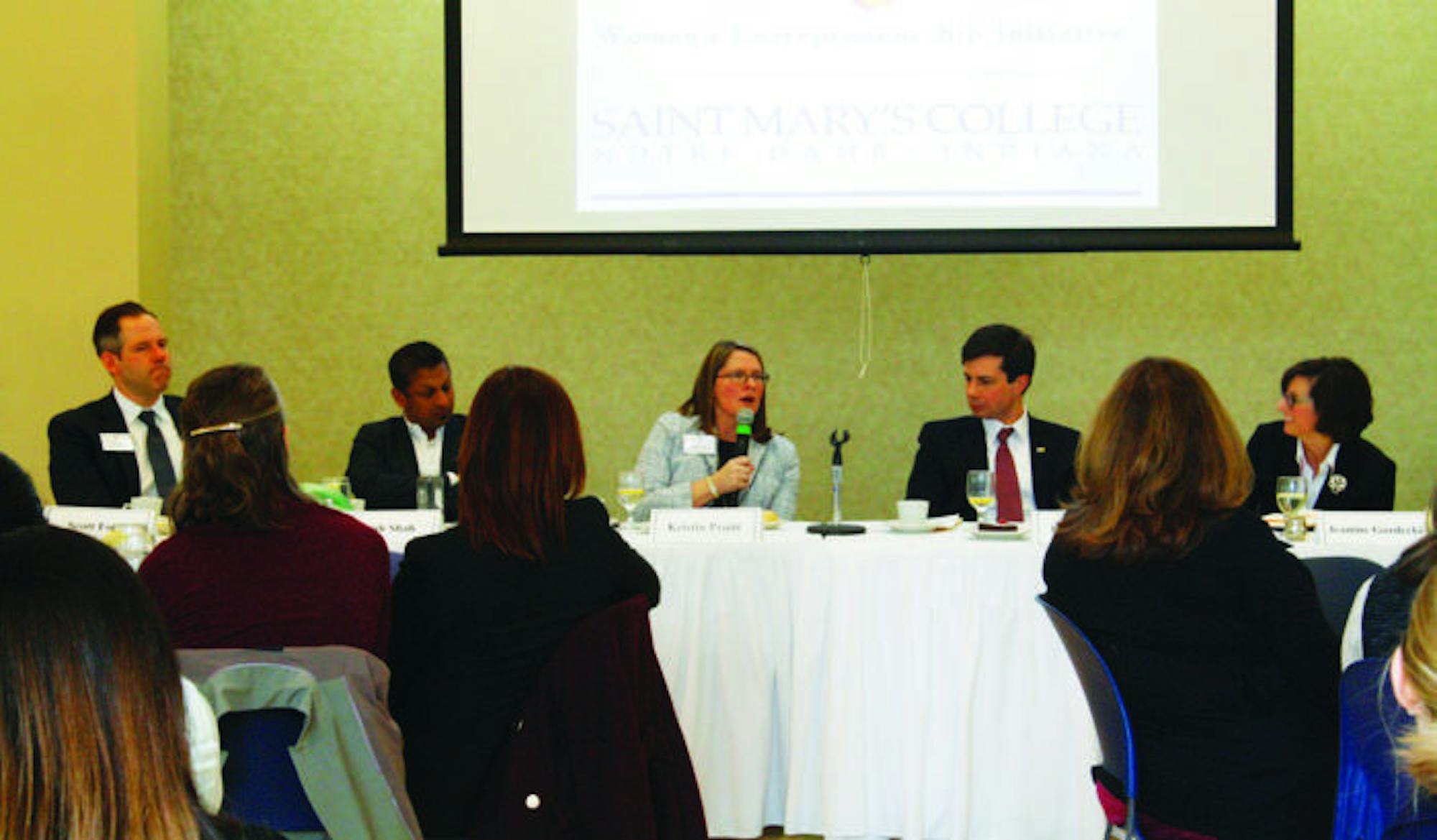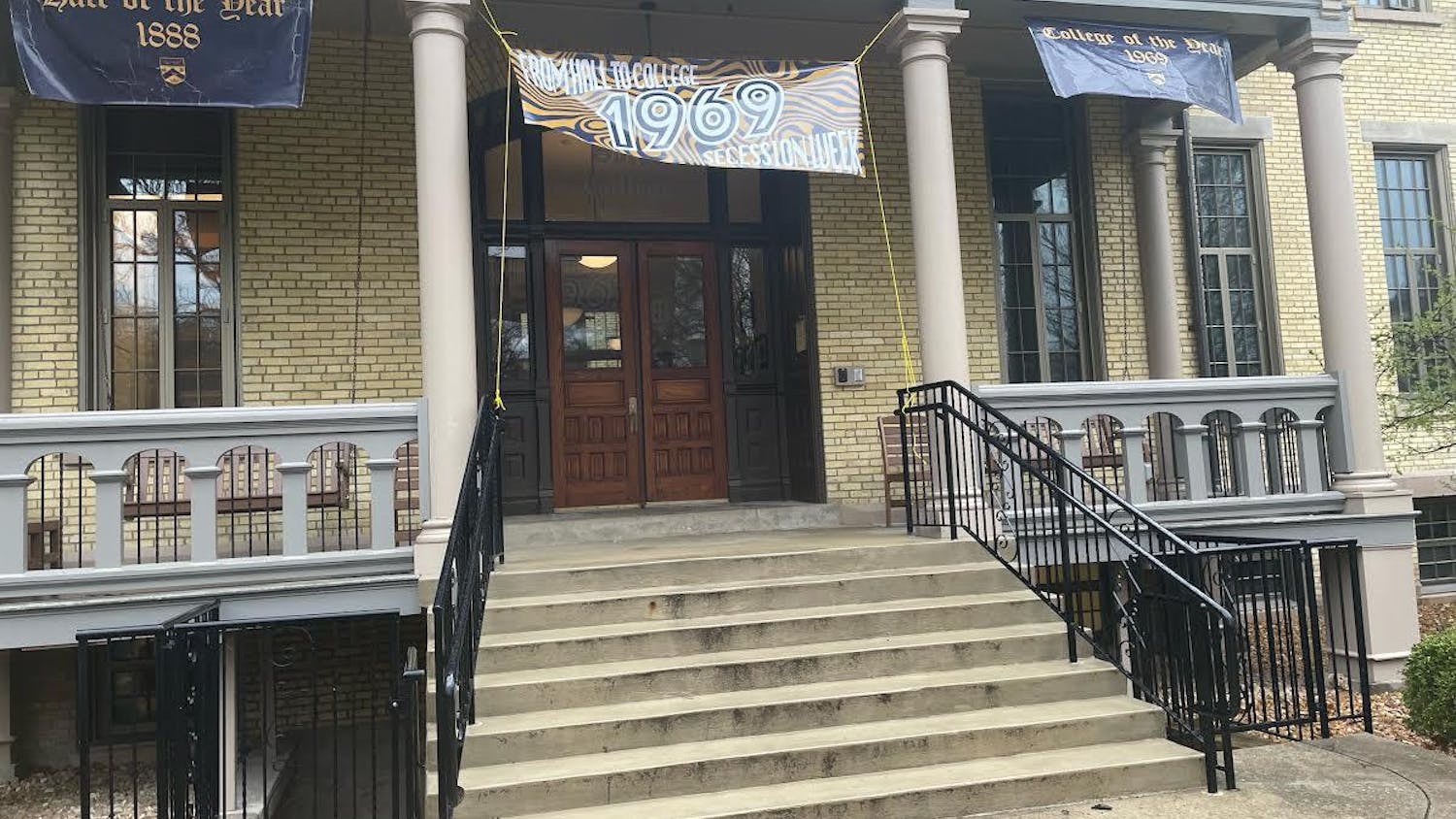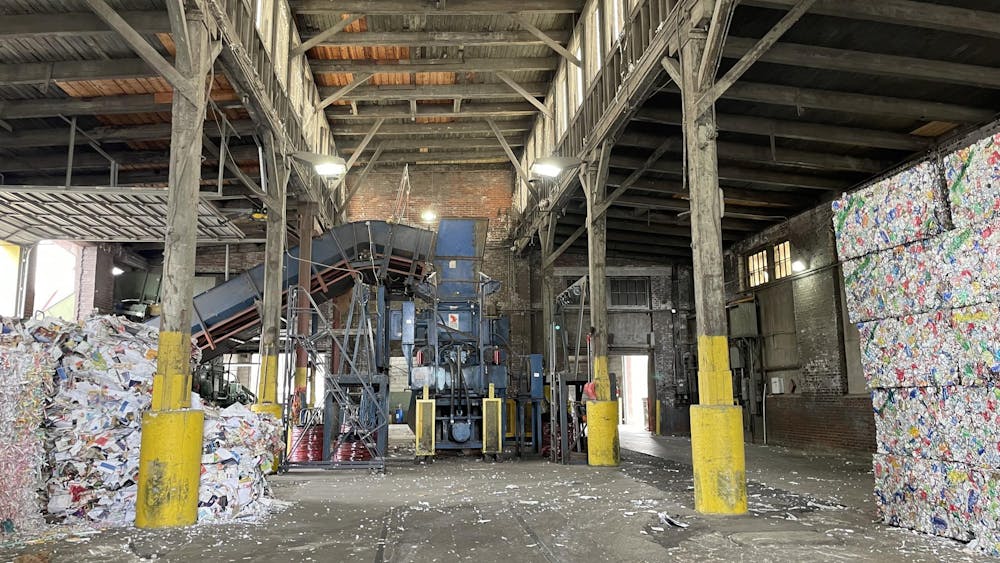Saint Mary’s hosted the first of a series of workshops addressing sexual harassment in the workplace Monday in Rice Commons.
The workshop, “Leading by Example: The Impact of Change,” featured six community leaders: South Bend mayor Pete Buttigieg; College President Jan Cervelli; Scott Ford, associate president for economic development at the University of Notre Dame; Jeanine Gozdecki, partner at Barnes & Thornburg, LLP; Kristin Pruitt, executive vice president, chief administrative officer and general counsel at Lake City Bankand and Amish Shah, chief executive officer of Kem Krest. 
“This is an important moment. Victims of workplace sexual harassment are making their voices heard and employers are striving to improve the professional environment,” Cervelli said. “These workshops will help individuals and organizations be proactive in developing policies that prevent harassment, establishing investigative processes that foster just outcomes and showing empathy for victims.”
The panel was moderated by Tricia Sloma, co-anchor of WNDU’s “16 Morning News.” The panel began with a short introduction from each member.
“Sexual harassment is a form of discrimination, and when I started working in the mid-1980s it had not been formally recognized as a form of discrimination,” Gozdecki said.
This recognition of sexual harassment as an issue is demonstrated in the organization of this workshop and others of the same nature, Buttigieg said.
“The mere fact of this convening signifies the fact that this is an important issue, and it represents a visual commitment to safety and equality in the workplace,” Buttigieg said.
Buttigieg said that he sees potential for a change in the frequency of sexual harassment.
“I wish that this conversation were unnecessary, but I think that we are living in a moment when we are poised to make progress on this in a speed that hasn’t been possible in a long time,” he said.
Introducing more women into positions of authority changes the dynamic of the organization, Pruitt explained. She also said that she has seen a change in the conversation when males have more female peers.
“The more women you have in senior roles in your organization, the less likely you will have a systemic problem with sexual harassment,” Pruitt said.
Shah said in his experience, the most effective way to recruit more women in the workplace is to put more women in leadership positions.
“We want to see meaningful management positions filled by diverse candidates,” he said. “It can’t just be all white dudes. We made it not an initiative, we made it a major priority and the results are there. And what happens is, females specifically will talk to other females and say this place is an awesome place to work … and that is the most organic recruiting you can get.”
The conversation also explored the importance of addressing sexual harassment. Cervelli said her higher education background gives her a unique perspective on the issues facing students and importance of being in touch with your community.
“I think we’ve seen too many institutions recently that have experienced horrendous sexual assaults, sexual harassment. And, the leadership seems to have been caught off-guard — weren’t aware, weren’t informed. That is inexcusable,” she said. “And, in my opinion, often times the institution and the criticism is centered around the president. And rightly so. But it starts with the board of that institution — the board of trustees, the board of regents — in setting expectations of being in the know. And the only way you can be in the know as an executive and an institution is to be engaged.”
Buttigieg said it is important to be conscious of the intended and unintended benefits of inclusion.
“When we make sure that our workplace is a great place for women to work, that is also making sure it is a great place for men to work,” Buttigieg said.
The panel discussed the intergenerational differences that can be observed in interactions. Ford said he observes this in interactions people have with his four-year-old daughter.
“ … Sometimes people will come up to [my daughter] and say, ‘Give me a kiss.’ And we’ve trained her to say, ‘I’m not comfortable with that, but I’ll shake your hand,’” Ford said. “But, just equipping her with that at age four with the hope that downstream, she’ll be that much more comfortable with those unwanted advances in the future.”
The #MeToo movement, along with allegations surfacing on social media, has helped bring awareness to the realities of sexual harassment, along with attempts to eliminate it, Cervelli said.
“There’s great inspiration to be found in the grassroots efforts that have brought this issue to the forefront of the public mind,” she said. “Courageous women with much to lose — and many who have lost much for their resistance to this kind of abuse — have awakened us. We, as leaders, owe it to them, and to all who are a part of our organizations to root out this problem once and for all and entrench the workplace equality that we all value.”












